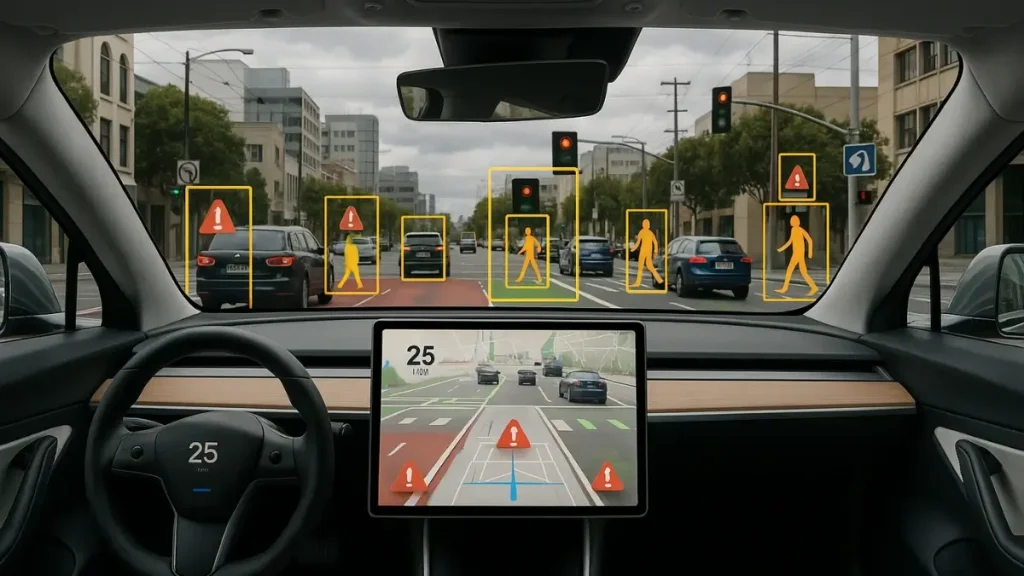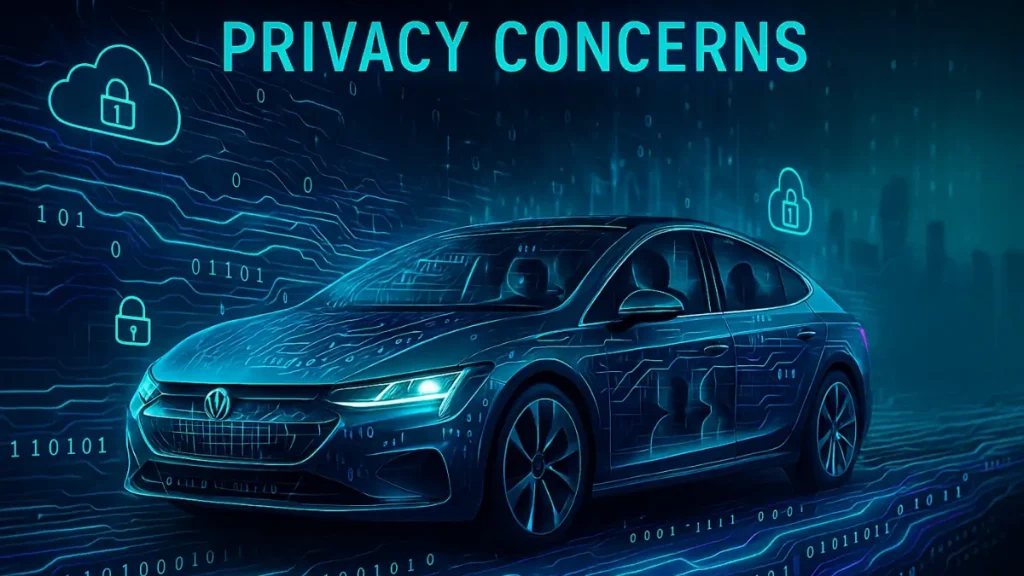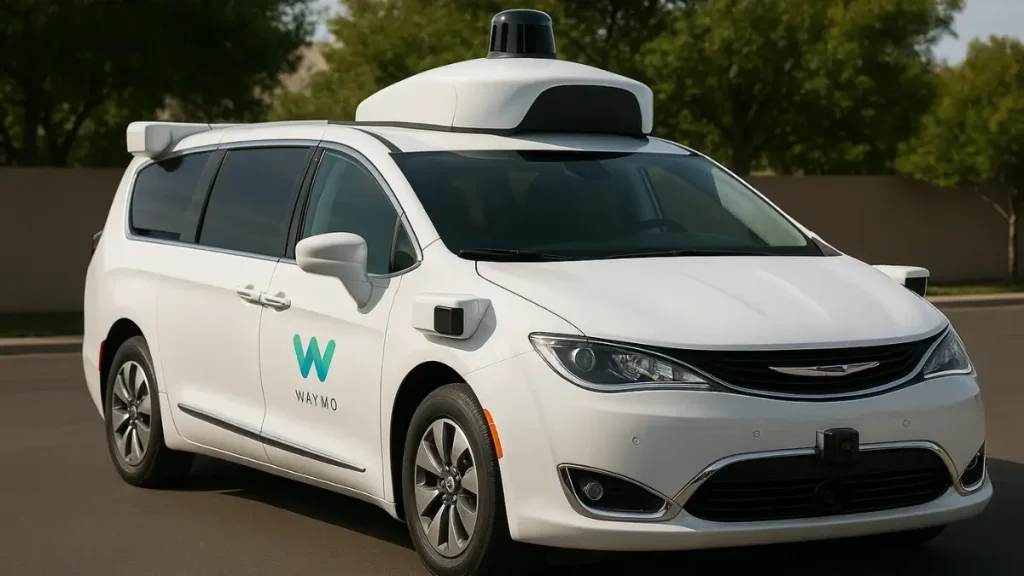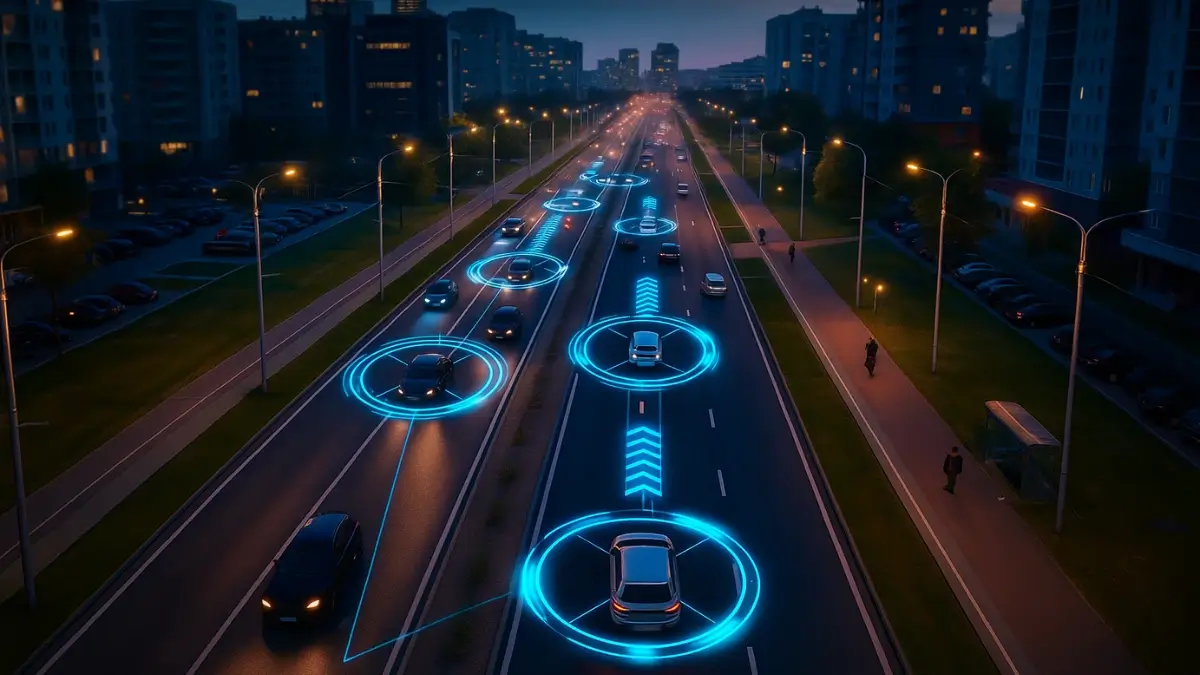
Hi Guys, As the world is changing quickly, and one of the biggest changes to look forward to is the rise of autonomous cars. Self-driving cars are being tested on roads around the world, from the USA to the UK, Canada, and even places like Singapore and South Africa. However, as exciting as this technology may seem, there’s still a lot of fear and tension surrounding it. Many people are unsure about whether autonomous cars are a good idea, and others are downright afraid of them. Let’s break the ultimate truth behind the fear surrounding autonomous cars.
In this blog, we’ll take a look at why so many people are afraid of self-driving cars, how they might actually benefit us, and what needs to change before we fully trust these vehicles. Using real stories and experiences from Reddit users, we’ll explore the emotions behind this fear and try to understand the bigger picture.
What Are Autonomous Cars?
Before diving into the fear, let’s first understand what autonomous cars actually are. At their core, autonomous cars, also known as self-driving cars, are vehicles that can drive themselves without the need for a human driver. These car use advanced technology, like sensor, camera, radar, and algorithm, to understand their surrounding and make decision on the road.
With the help of AI (artificial intelligence) and machine learning, these car can predict what’s happening around them and drive from one place to another. Autonomous cars are designed to follow the traffic rules, avoid obstacles, and even park themselves, all without human input.
The Fear: Why Are People Afraid?
Now that we know what autonomous cars are, let’s explore why so many people are afraid of them. It’s not just about the cars themselves, but about the idea of putting our trust in machine. Let’s break down the biggest fears.
1. Fear of Losing Control
One of the biggest concern people have is the fear of losing control. Humans are used to driving and making split-second decisions. The idea of letting a machine take over and make decisions for us can be unsettling. People often wonder: “What if the car makes a mistake?”
A Reddit user from the UK wrote, “I’ve been driving for years, and it just doesn’t feel right to hand the wheel over to a computer. What happens if the car malfunctions or gets confused by something? What happens if there’s an accident?”
The fear of losing control is something that resonates with many people, especially in countries like the USA, Australia, and Canada, where personal freedom are highly valued. For many, driving is not just about transportation but about freedom.
2. Trusting Technology
Another huge factor is the trust we have in technology. While we trust our smartphone and computer, trusting a car to drive us seems like a whole other level. A Reddit user in South Africa said, “I’m not convinced that autonomous cars can be fully safe yet. They might work fine in good weather, but what about when there’s a storm or snow?”
Even though autonomous cars are designed with a lot of advanced technology, there’s still a sense of unease about how reliable they really are. We hear about how cars sometimes malfunction, and the thought of being stuck in a car that can’t handle an emergency situation is enough to make many people nervous.
3. Fear of Unforeseen Situations
Self-driving cars are programmed to follow rules, but they don’t have the same level of human intelligence. For example, in a tricky situation where a human driver would need to make a fast decision, an autonomous car might not be able to respond in the same way.
A Reddit post from the Netherlands said, “What if the car comes across an unexpected situation that isn’t programmed into its system? How will it decide what to do?”
In real-world driving, we often have to make quick decisions that rely on emotions and experience. This is something that autonomous cars might struggle with. And while their AI can make calculated decisions, there’s still a lot of doubt about how well these systems can handle everything.
4. Privacy Concerns
Autonomous cars rely heavily on data. They gather information about the roads, your location, and even your habits to navigate effectively. While this can be helpful, it also raises privacy concerns. People wonder: “Where is all this data going? Is it being used against me?”
A Reddit user from Ireland mentioned, “How much is the car tracking me? Will it know where I go and when? What happens to all that data? Is it safe?”
In countries like the UK, USA, and Australia, where privacy is a big issue, these questions are becoming more important as self-driving cars become more common. The idea of your car knowing your every move can feel invasive, and people worry about how companies will use that data.

5. The Job Market and the Fears
There’s also a concern about how autonomous cars might affect jobs. In the USA and Canada, millions of people work in jobs related to driving—truck drivers, taxi drivers, delivery drivers, and more. If autonomous cars become mainstream, many of them could lost their one’s.
A Reddit user from Canada shared their worries, saying, “What will happen to all the truck drivers and delivery people if self-driving trucks take over? It’s hard to think of all those people out of work.”
This fear isn’t just about people losing jobs; it’s about a whole shift in the economy. People are concerned that the widespread use of autonomous cars could cause unemployment in many industries, leading to bigger economic challenges.
Human-Driven Cars vs. Autonomous Cars: A Comparative Overview
| Aspect | Human-Driven Cars | Autonomous Cars |
|---|---|---|
| Crash Rate | Approximately 4.1 per million miles | Waymo’s autonomous vehicles: 0.41 per million miles, an 85% reduction |
| Injury Severity | Higher likelihood of severe injuries and fatalities | 92% fewer bodily injury claims compared to human drivers |
| Driver Distractions | Susceptible to distractions (e.g., mobile phones, fatigue) | Not subject to human distractions; continuous monitoring of surroundings |
| Reaction Time | Average reaction time: ~1.5 seconds | Instantaneous response to stimuli, unaffected by fatigue or distractions |
| Weather Adaptability | Performance can degrade in adverse weather conditions | Equipped with sensors to detect and adapt to changing weather conditions |
| Pedestrian Interaction | Risk of misjudging pedestrian movements | 92% fewer pedestrian-related injury crashes |
| Traffic Handling | Prone to errors in complex traffic scenarios | Advanced algorithms designed to navigate complex traffic situations |
| Public Perception | Generally trusted by the public | Mixed reactions; trust varies by region and exposure to autonomous technology |
| Regulatory Oversight | Well-established regulations and licensing requirements | Evolving regulatory frameworks; varies by country and region |
| Cost of Operation | Includes fuel, maintenance, insurance, and potential accident-related costs | Potentially lower operational costs due to reduced accident rates and efficient driving algorithms |
Key Takeaways
- Safety: Autonomous vehicles, particularly those operated by companies like Waymo, have demonstrated significantly lower crash rates and fewer injury claims compared to human-driven vehicles.([The Washington Post][9])
- Driver Distractions: While human drivers are susceptible to distractions, autonomous cars are designed to maintain constant vigilance, potentially reducing accidents caused by human error.
- Public Perception: Trust in autonomous vehicles varies globally. For instance, countries like China have shown higher levels of acceptance, whereas regions in the USA and Europe exhibit more skepticism .
- Regulatory Challenges: The implementation of autonomous vehicles faces regulatory hurdles, with different countries establishing varying standards and testing protocols.
The Benefits of Autonomous Cars
While the fears are real, it’s also important to look at the potential benefits of autonomous cars. Despite all the concerns, these cars could change the way we live for the better.
1. Reduced Accidents
One of the most significant benefits of autonomous cars is the potential to reduce accidents. According to data, human error is responsible for 94% of all traffic accidents. With autonomous cars, the chances of a crash caused by distracted driving, speeding, or drunk driving could be dramatically reduced.
In places like the UK, USA, and Australia, where traffic accidents are a major problem, autonomous cars could save lives. By removing human error from the equation, we could see a significant drop in traffic-related deaths and injuries.
2. Better Traffic Flow
Autonomous cars can communicate with each other, meaning they can drive more efficiently and reduce traffic jams. In cities like Singapore and the Netherlands, where traffic congestion is a serious issue, this could make a big difference.
A Reddit user from the Netherlands said, “If all cars on the road could talk to each other, we could avoid traffic jams and reduce the stress of driving. That would be amazing.”
Autonomous cars could also improve parking. With smart cars that can park themselves, we wouldn’t have to waste time searching for a spot, making driving much more convenient.
3. Accessibility for All
Another benefit is accessibility. Self-driving cars could be a game-changer for people who are elderly, disabled, or otherwise unable to drive. In the USA, UK, and Canada, where there is an aging population, autonomous cars could provide a solution for those who no longer have the ability to drive themselves.
For example, a Reddit user in the USA shared, “My mother can’t drive anymore, and she hates having to depend on someone else to take her places. Autonomous cars could give her independence again.”
4. Environmental Impact
Many autonomous cars are electric, which means they could help reduce emissions and fight climate change. In places like Australia and South Africa, where environmental issues are becoming more urgent, the use of electric self-driving cars could help lower our carbon footprint.
Autonomous cars could also make it easier to share rides, which would reduce the number of vehicles on the road, further decreasing pollution and energy consumption.
Certainly! Here’s a detailed comparison between human-driven and autonomous cars, focusing on safety, performance, and public perception, with insights from recent studies and real-world data.
The Road Ahead: Embracing the Future
While there are still many challenges to overcome, the future of autonomous cars looks promising. Governments in the USA, UK, Canada, Australia, and beyond are already starting to work on regulations and safety standards for self-driving cars. As technology improves, the public’s fear may lessen, especially as more people experience the benefits firsthand.
However, trust is a long road to travel. People need to see that autonomous cars are not only safe but that they also improve their quality of life. As more cars hit the road and the technology proves itself, it’s likely that the fear will fade, and acceptance will grow.
❓ Frequently Asked Questions (FAQs) About Autonomous Cars
1. What are autonomous cars?
Autonomous cars, also called self-driving cars, are vehicles that can operate without human input. They use sensors, cameras, radar, and artificial intelligence to navigate roads, follow traffic laws, and avoid obstacles.
2. Why are people afraid of autonomous cars?
Many people fear autonomous cars because of concerns about losing control, trusting technology, privacy issues, job losses, and uncertainty about how these vehicles will react in unforeseen situations.
3. Are autonomous cars safer than human-driven cars?
Yes, studies show that autonomous cars can significantly reduce accidents caused by human error. For example, Waymo’s autonomous vehicles reported crash rates 85% lower than human-driven cars.
4. Can autonomous cars drive in bad weather?
Autonomous cars are designed with advanced sensors and AI to handle conditions like rain, fog, and snow. However, performance may vary depending on technology upgrades and local road conditions.
5. Will autonomous cars take away driving jobs?
Yes, industries like trucking, taxi, and delivery could be affected. However, new opportunities may also emerge in vehicle monitoring, AI development, and tech maintenance.
6. How do autonomous cars protect privacy?
Self-driving cars collect data to navigate safely, such as location and driving patterns. Regulations and encryption are being developed to ensure that this data remains secure and private.
7. What benefits do autonomous cars offer?
Key benefits include fewer accidents, smoother traffic flow, increased accessibility for elderly and disabled people, reduced stress from driving, and a positive impact on the environment if vehicles are electric.
8. When will autonomous cars become common in the USA, UK, and other countries?
Autonomous cars are already being tested in countries like the USA, UK, Canada, Singapore, and Australia. Widespread adoption depends on regulatory approvals, infrastructure upgrades, and public trust, which may take another 5–10 years.
Conclusion: Facing the Fear of Autonomous Cars
Autonomous car bring both excitement and fear. While there are many valid concerns—control, trust, privacy, and job loss—the benefits they offer are undeniable. The truth is, autonomous cars could save lives, reduce traffic, and make transportation more accessible for everyone. The key to overcoming the fear of self-driving cars lies in better education, clearer regulations, and the continuous development of safe, reliable technology.
If you live in the USA, UK, Canada, Australia, Singapore, or anywhere else where autonomous cars are being tested, it’s important to stay open-minded and informed. The road to self-driving cars is still under construction, but it holds the potential to make our world a safer, more efficient, and more sustainable place.
Get Information National Institute of Standards and Technology (NIST)

✍️ Author & Writer Introduction
Author: Ahshanur Rahaman Joy
📧 Email: support@ecotreklife.com
🌐 Website: ECO Trek Life
Ahshanur Rahaman Joy is the founder and writer of ECO Trek Life, a platform dedicated to exploring the worlds of technology, healthcare, traveling, and gardening. With a deep curiosity about how innovation and lifestyle connect, Joy creates content that is practical, inspiring, and easy to follow. His mission is to make complex topics simple and engaging so readers can apply knowledge in real life.
At ECO Trek Life, Joy blends research with storytelling. He writes about the latest tech trends shaping our future, practical healthcare and wellness tips, travel guides for curious explorers, and gardening advice that brings people closer to nature. Each article reflects his belief that small changes—whether adopting new technology, improving health habits, or planting a seed—can lead to meaningful growth.
Joy’s passion comes from his personal experiences and a vision to create a more sustainable and informed lifestyle for readers. Through ECO Trek Life, he aims to build a trusted hub where knowledge and inspiration meet. Whether you are a tech enthusiast, a health-conscious individual, a traveler, or a nature lover, Joy’s writing offers something valuable for everyone.




